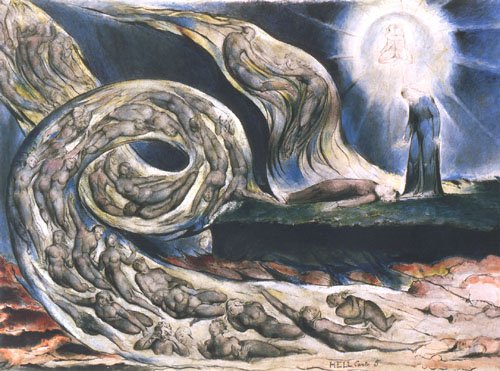translated from Liberación Total by thisisourjob
April 30, 2010
Here is the new letter from Konstantina Karakatsani, now locked up in Eleona prison (as is Panagiota “Pola” Roupa, charged in the Revolutionary Struggle case):
On April 22, while I was talking on a payphone in the middle of Athens, they came and arrested me. It was bound to happen. I didn’t set a specific length of time to keep running, so I ran until they found me. Later they brought me to Police Headquarters, where you already know what happened. Certain pigs have an endless supply of bluster and insults. They were so descriptive, I still feel like throwing up! Anyway, I don’t expect anything better from them. After spending two days in the 12th-floor “safe house,” and after the prosecutor finally decided to put me in prison, I was transferred to Eleona. Six or seven cars and three motorcycles escorted a lone criminal: me.
Of course, everyone defines “crime” in their own way. To them, consciousness and struggle are crimes. That’s exactly why the Minister of Snitch Protection crudely attempts to repress crime in the first place! The jailings, the neverending criminal prosecutions in the Fire Cells case, the assaults on political spaces, the scurrilous charges, and the recent murder of Lambros Foundas—shot in the back during what some miscreants don’t hesitate to call “the great success of the Greek police”: Their objective isn’t just to dismantle some organization, but to intimidate and paralyze all who struggle. They’ll take you away for mere intent.
It doesn’t matter whether there is evidence; you have to go to jail to learn to bow your head. Someone has to tell them, once and for all, that revolutionary consciousness knows no bars, cages, or handcuffs, and that it can’t be reformed.
Most people tend to tighten their chains by themselves. Each, in their way, is building their own imaginary prison. That’s how they were taught, and as long as it makes them happy, they feel secure.
In here and out there, now and forever, those who live freely never build their own prisons.
A huge embrace for all the imprisoned and persecuted victors. The vanquished are the ones who cower in surrender and submission.
“In the hushed silence of an impregnable slaughterhouse, the rage of a trapped animal is all the more terrifying.”
PS: When the comrades’ march reached the prison, the phone lines were cut to prevent me from communicating with them. Also, my cell window—by sheer coincidence!—doesn’t face the street. The march was received quite positively, and the prisoners talked about it all day.
—Konstantina Karakatsani, Eleona prison
Short chronology of the Fire Cells Conspiracy case:
September 23, 2009: After raiding the supposed “safe house” in the Chalandri neighborhood, police arrest four people: Haris Hatzimikelakis, Panagiotis Masouras, Myrto Panteloglou, and Manolis Giospas. Two days later, on the basis of fingerprints found at the house, authorities issue six arrest warrants.
September 29 and 30, 2009: Three of the arrestees are placed in preventive detention, while Myrto is granted conditional liberty (he is prohibited from leaving the country and required to check in at his local police station every 15 days).
November 14, 2009: Another five arrest warrants are issued, resulting in the capture of comrade Antigoni H., who is granted conditional liberty after four days.
January 5, 2010: Nikos B. is arrested, then also granted conditional liberty.
February 1, 2010: A different Nikos is arrested and placed in preventive detention.
February 23, 2010: Prosecutor K. Baltas orders a freeze on the bank accounts of everyone charged in the case (the prisoners, those granted provisional liberty, and those still at large), and their families. While all the accused are very young, and therefore don’t have much money or even bank accounts, the measure is an extra outrage against their families. For example, Panagiotis Masouras’ parents (the father is a construction worker and the mother is unemployed) have serious problems accessing their meager savings, and are forced to show the bureaucracy that the sources of their deposits are legal.
March 3, 2010: After a month in prison, Nikos is granted conditional liberty.
March 23, 2010: Errikos Ralis, who had been on the run, is arrested in Volos on a warrant dating back to November 14, 2009. The evidence against him is a fingerprint found on a bathroom tile in the Chalandri “safe house.” The police—with unconditional support form the mass media, as usual—publish photos of the youth and ask the public to contribute information about him. They also insinuate that Errikos is “the most probable author of the first Fire Cells Conspiracy communiqués.” Nevertheless, judges grant him provisional liberty.
April 15, 2010: In accordance with Greek law, prosecutors meet with a committee of appellate judges six months after the initial arrests in order to decide whether to prolong the preventive detention of the accused. A demonstration is held outside the courthouse, and slogans are shouted to salute and encourage the comrades when they are brought in and later when they are taken away. Manolis Giospas is granted provisional liberty, while the rest have their imprisonment extended.
April 22, 2010: Nineteen-year-old Konstantina Karakatsani is arrested in the middle of Athens, having been on the run since late September 2009. Her first letter was published last November, and was followed in December by a letter from her mother
Subscribe to:
Post Comments (Atom)

















No comments:
Post a Comment